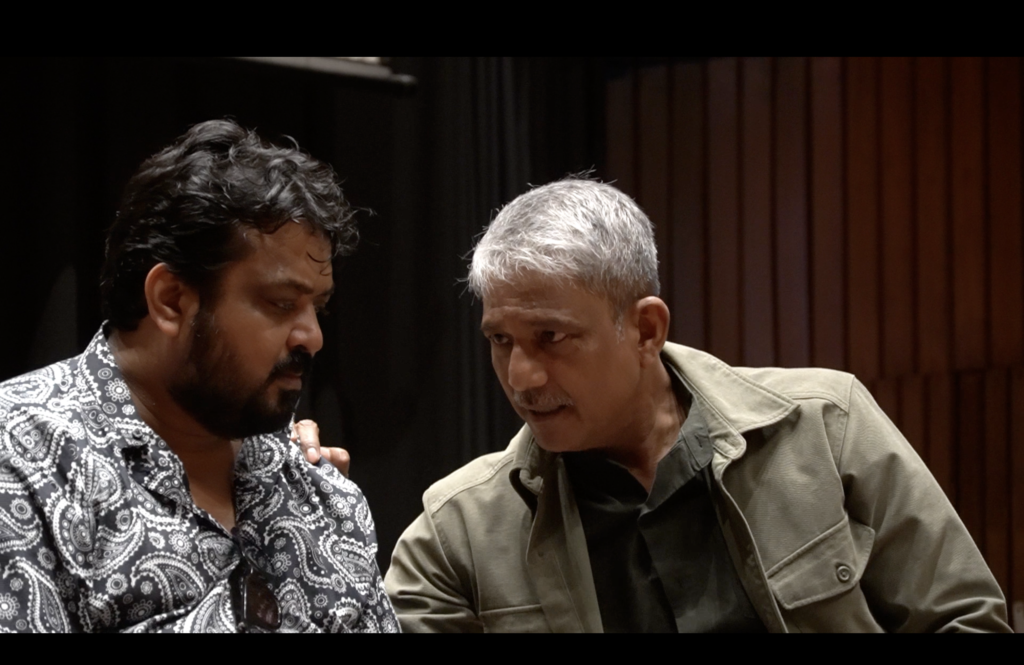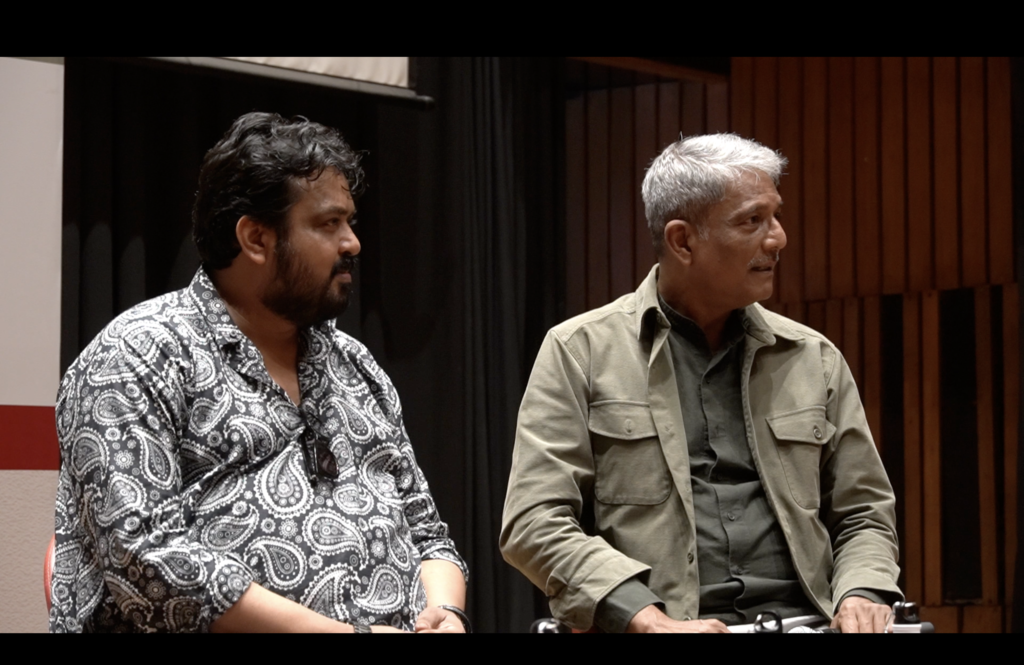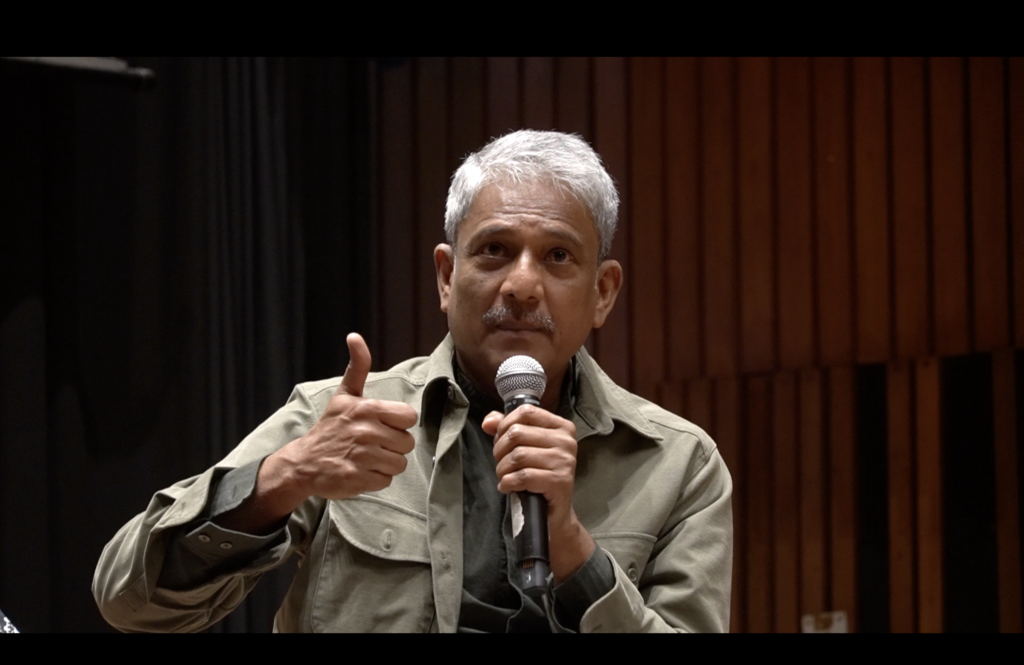Village Square’s Chitrashaala: A Cinematic Journey Through Rural India’s Soul and Struggles
Amid the vibrant pulse of the capital, the Chitrashaala Short Film Festival unfolded a rich tapestry of rural stories, with Village Square curating 12 compelling short films that cast a spotlight on the pressing environmental and social issues shaping rural India. This lively festival, a cornerstone of the fourth India Rural Colloquy, not only confronted the urgent challenges of climate change but also celebrated the deep cultural and craft heritage that defines rural communities.
The festival was far more than just a series of film screenings—it became a space where the voices of rural artisans echoed, and the stark realities of climate change impacting their lives were brought to light. It sparked heartfelt conversations, with actors Adil Hussain and Faisal Malik sharing their journeys in a dialogue moderated by film critic Saibal Chatterjee. Their discussions explored the profound influence of rural life and culture on their artistry, offering a window into the lives, struggles, and triumphs of artisans and the evolving role of cinema in capturing these intricate stories.
A particularly memorable moment was the panel discussion on “Cinema and Arts and Crafts,” featuring acclaimed filmmaker Muzaffar Ali, whose 1986 classic Anjuman beautifully portrayed the lives of Lucknow’s chikankari artisans. The discussion, led by film critic Suparna Sharma, also highlighted Mask of Majuli, a touching film that delves into an often-overlooked Assamese craft. Director Utpal Borpujari shared his experiences in creating the film, enriching the conversation on how cinema and traditional crafts intersect in meaningful ways.
Reflecting on his roots, Adil Hussain shared, “Growing up in Goalpara, one of the remotest towns in Assam, I was deeply shaped by the vibrant cultural scene, from local theater to Bengali cinema. This cultural immersion profoundly influenced my journey as an actor, and it’s eye-opening to see how such experiences can be so vastly different, as I realized when I met a young man in Gurgaon who hadn’t even heard of the National School of Drama.” Faisal Malik echoed this sentiment, discussing how his lifelong love for cinema, born in his childhood in Allahabad, continues to shape his career, emphasizing that an actor’s journey is often about harmonizing personal insights with the director’s vision.

From left film Critic Suparna Sharma, Muzaffar Ali, Utpal Borpujari and Riah Taipodia
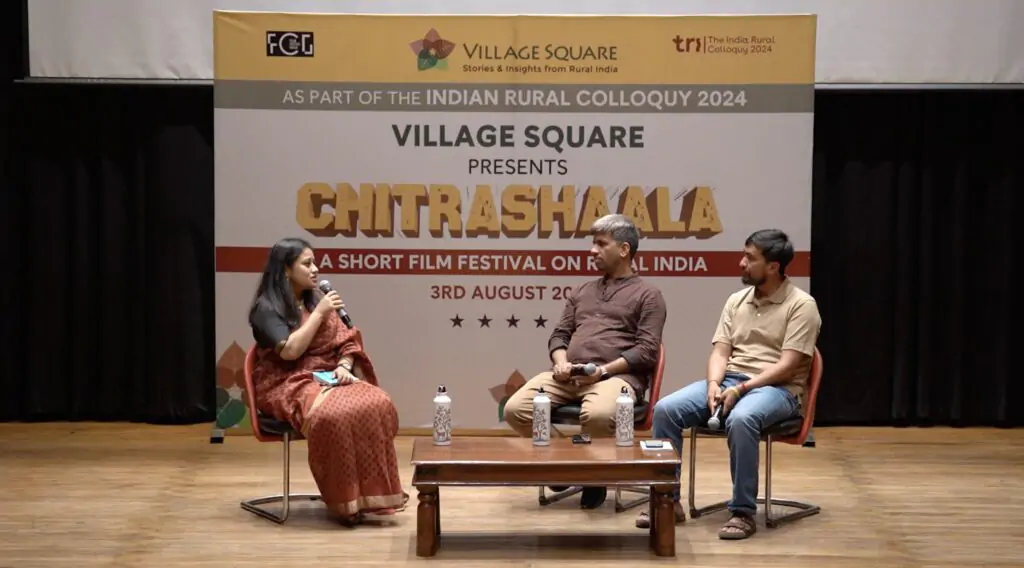
From left film critic Shomini Sen in conversation with filmmakers Jigar Nagda in the middle and Stenzin Tankong on right
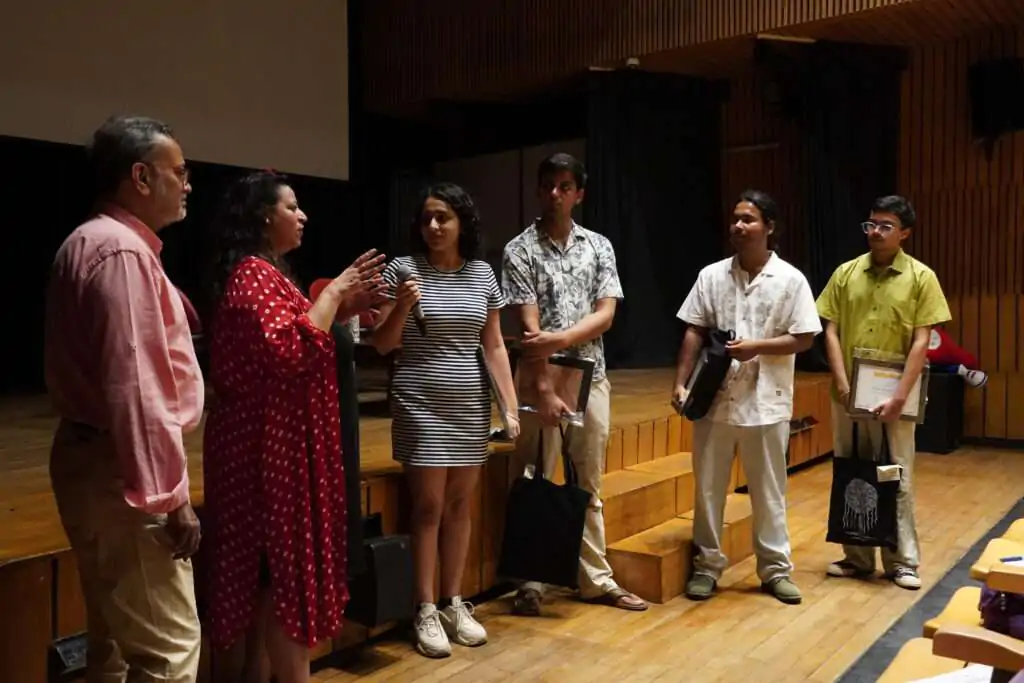
From left film critic Arnab Banerjee and Suparna Sharma in conversation with student film winner Nanki Ghuman, Amit Kumar , Ayon Pratim Saikia and Soham Prasad Bhende .

From left film critic Suparna Sharma with student film winner Nanki Ghuman, Amit Kumar , Soham Prasad Bhende and Ayon Pratim Saikia . On the extreme right we have film critic Arnab Banerjee
Muzaffar Ali added a poignant perspective, emphasizing the role of the younger generation in breathing new life into traditional crafts. He noted, “When young people across the country engage with crafts, they infuse these traditions with fresh energy and perspectives, making them resonate with a wider audience. Today’s filmmakers are approaching craft with a multidimensional view, and as more individuals get trained in communication and design, these craftspeople find new pathways for expression and recognition.”
The Chitrashaala Short Film Festival showcased a diverse array of 14 films across four categories: Culture, Climate, Student Films, and Film Critics Guild Choice. Films like Mask Art of Majuli by Utpal Borpujari, Wooden Tales from Thammampatti by Vivi Raaj, Khiew Ranei – Black Clay by Riah Taipodia, and Dastaan-e-Dastkari-Moradabad by Muzaffar Ali vividly illustrated the deep connection between cinema and the world of arts and crafts. Meanwhile, the theme of climate change was powerfully captured in films such as Priya Thuvassery’s Coral Woman, Jigar Nagda’s Aravali: The Lost Mountains, and Stenzin Tankong’s Last Days of Summer.
The festival also became a stage for emerging filmmakers, with a student film contest that highlighted talents like Ayon Pratim Saikia, Amit Kumar, and Soham Bhende, whose films stood out as the top selections. Nanki Ghuman’s Patangarh ka Hero received a special mention from the jury, showcasing the event’s dedication to nurturing new voices in the cinematic landscape.
Sameer Kapoor, President of Village Square, articulated the festival’s purpose, saying, “Chitrashaala is our way of raising awareness about the heritage and challenges faced by rural India, particularly the critical issue of climate change. By bringing together voices from various sectors, we aim to foster meaningful discussions and inspire actionable change.”
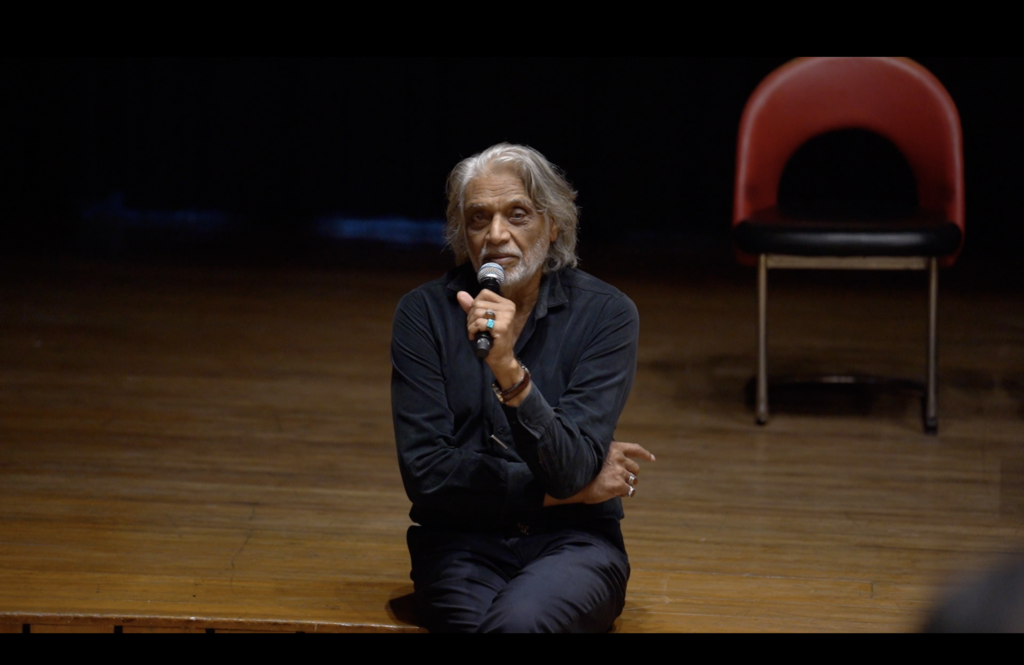

The festival concluded with the screening of the Sanjay Mishra-starrer Giddh (The Scavenger) by Manish Saini and Karishma Dev Dube’s Bittu, which was shortlisted for the 93rd Academy Awards, marking the Film Critics Guild’s top choice for the event.
The India Rural Colloquy 2024, organized by Transform Rural India (TRI), extended its reach across multiple states—Delhi, Madhya Pradesh, Uttar Pradesh, Jharkhand, and Chhattisgarh—from August 1-8. This series of conversations and events, held during the August Kranti week, sought to ignite a rural renaissance by bringing together voices from civil society, government, and business to create actionable solutions for rural development. Through an engaging mix of panel discussions, debates, fireside chats, and roundtables, the Colloquy addressed vital topics like climate resilience, health and nutrition, youth employment, microenterprises, farm prosperity, gender inclusivity, and local governance, all with the shared goal of fostering a thriving rural India.

